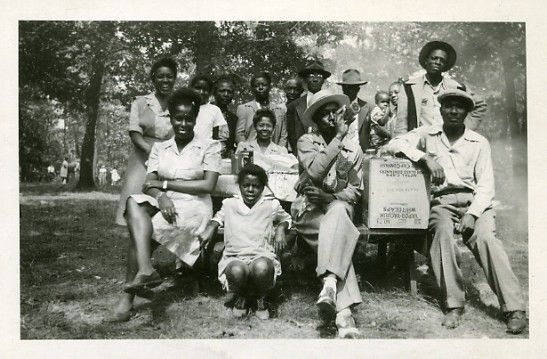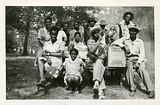Three Important Ways to Honor Your Personal Black History

by Lyndsey Ellis
Everyone knows February is Black History Month. Many of us understand the occasion calls for recognizing the accomplishments of public figures who are of African descent. What many of us don’t grasp is how important it is to strike a balance between praising those who’ve gained national and international attention for their contributions and honoring the rich truths within ourselves, as well as the familiar beauty within our communities. Check out some ways to raise the standards this year and focus on uplifting your own cultural framework.
Bond with Your Elders
Getting to know our elders shouldn’t be reserved for one time of the year, but Black History Month can provide interesting talking points and bring to light specific aspects of their lives that we may otherwise not have gotten a chance to learn. The older generations—our grandparents, great aunts and uncles, perhaps a former elementary school teacher, the owner of the oldest black hair salon in the neighborhood, or that deacon who just celebrated his 50th wedding anniversary at church—aren’t just here to take up space for our amusement. These people are walking history books, the lighthouses of our society, the main link connecting us to our rich past. They’ve lived full lives with hardships and triumphs that many of us couldn’t imagine.
Ask lots of questions and be prepared to listen. Most people love to talk, especially about themselves. If your family’s anything like mine, you’ve got folks who wouldn’t mind letting you pick their brains and re-live hours of stories. These times make for great bonding experiences. The elder have so much to share, and many of their experiences serve as a beacon that can help us maneuver through our own life’s journey. It’s important for us to thirst for their wisdom and seek as much information as humanly possible. Don’t let their stories die with them.
Research Your Family Tree
Family trees consist of our bloodline and shows the relationship of each person to another in our gene share. These charts can trace ancestry all the way back to slavery and beyond if enough time is invested. Several online resources, including Ancestry.com and MyHeritage.com, make it easier to locate relatives and outline family structures. Today, there’s even interactive templates, do-it-yourself timelines, historical scavenger hunts available that allow for the exchange of information between relatives.
Consider taking it a step further and presenting your findings at the next family reunion. Truth be told, we all enjoy a good gathering that gives us the opportunity to reunite with and meet new relatives. Everybody usually wants to be part of the mix-and-mingle, but most of us end up relying on a select few—typically the eldest family members—to organize and create the agenda for these kinds of events. Assume a leadership role (or, at the very least, offer assistance) and help give voice to your family’s unique appeal and educate them on where you stand as a unit, in relation to mapping your lineage.
Knowing and owning our roots helps gives us a sense of permanency in a world where everything in our culture has been either borrowed, stolen, watered down, or displaced. It often takes years of
research to restore the pieces of our past so our identities feel whole and well. In time, these efforts can hopefully be handed down to the next generations for their benefit.
Get Creative
Think outside of the box and make your goals engaging. Utilize artistic and community-oriented outlets, such as writing, visual art, music, dance, theatre, even cooking. Consider keeping a journal that documents the course of events at a family outing or neighborhood affair. Organize community programs for the sake of calling attention to your local leaders and mentors. If you’re into sewing, why not make a quilt that outlines specific occasions that are meaningful to you.
Or, host a celebration that honors black entertainment and special traditions. Organize a dinner party with family recipes of hot water cornbread, bread pudding, and all that embodies what your personal history means to you and your loved ones. And, of course, it’s essential to go the extra mile by regularly patronizing black-owned businesses that provide quality services and products.
There’s no right or wrong way to pay tribute to our own distinctive histories. The only mistake is not making an attempt to cherish and preserve our personal heritage. We must continue to challenge ourselves to keep our voices alive while still observing the deeds of those on the broader spectrum.

No comments: